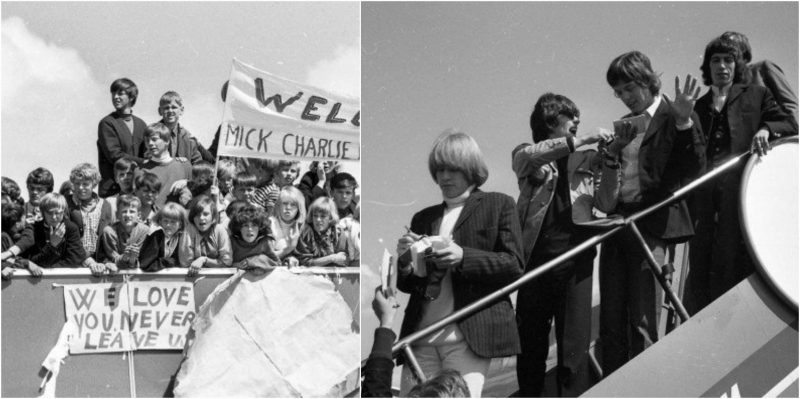Back in the ’60s, Rolling Stones were the bluesy, “bad boy” alternative to The Beatles. The band played their first gig ever at the Marquee Club in London on July 12, 1962. A cover of Chuck Berry’s “Come On” was the Rolling Stones’ first single, released on 7 June 1963.The band’s second UK LP – The Rolling Stones No. 2, released in January 1965, charted at number 1 as an album, and the US version, released in February as The Rolling Stones, Now!, reached number 5.
In, 1965, as they reached the height of fame, Rolling Stones toured extensively, they played in Ireland, Australia, New Zealand, Singapore, England, the United States, Scotland and Scandinavia.
Their first international number 1 hit was “(I Can’t Get No) Satisfaction”, recorded in May 1965 during the band’s third North American tour. In recording the guitar riff with the fuzzbox that drives the song, Richards had envisioned it as a scratch track to guide a horn section. Disagreeing, Oldham released “Satisfaction” without the planned horn overdubs. Issued in the summer of 1965, it was their fourth UK No. 1 and first US No. 1 where it spent four weeks at the top of the Billboard Hot 100, establishing the Rolling Stones as a worldwide premier act.
What we have here is the frozen fragment of time that offers a glimpse into the euphoria and hysteria that happened at the Oslo airport back on June 24, 1965, when thousands of fans were impatiently waiting for The Rolling Stones to touch the ground in Norway. Take a look.
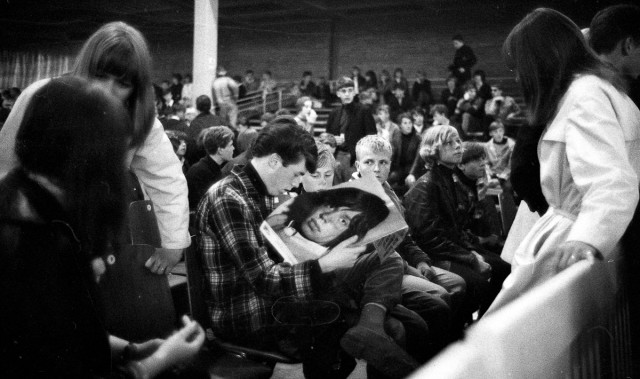
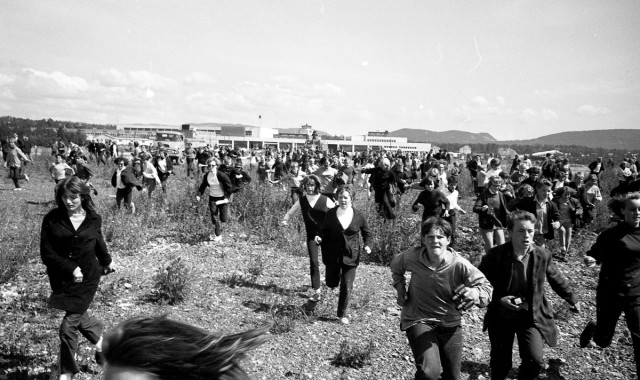
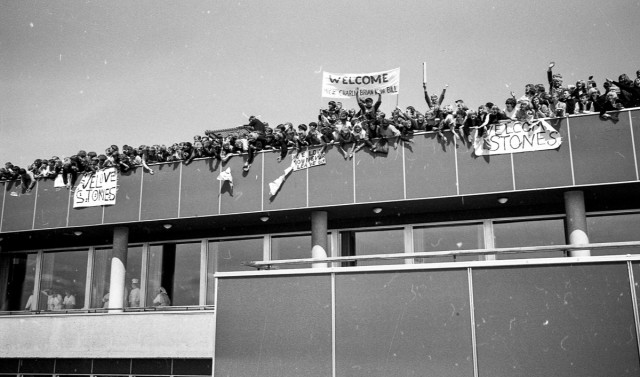
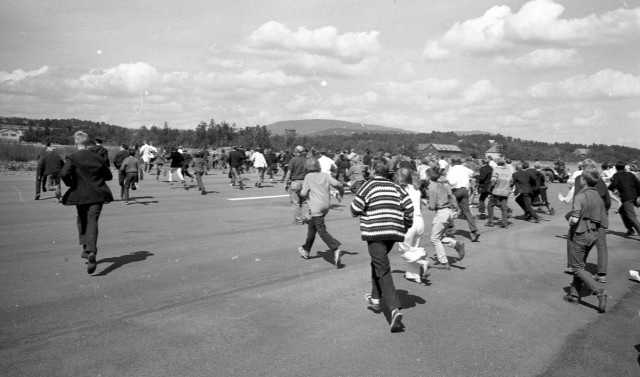
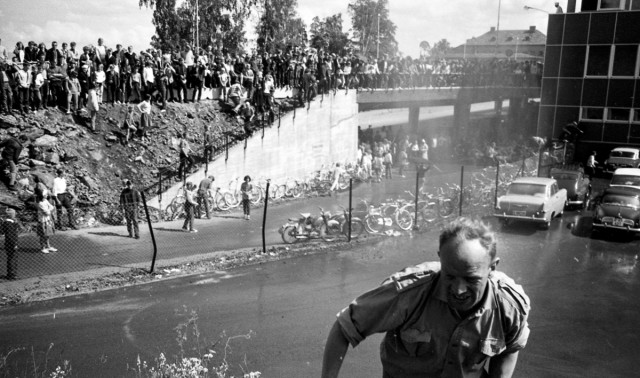
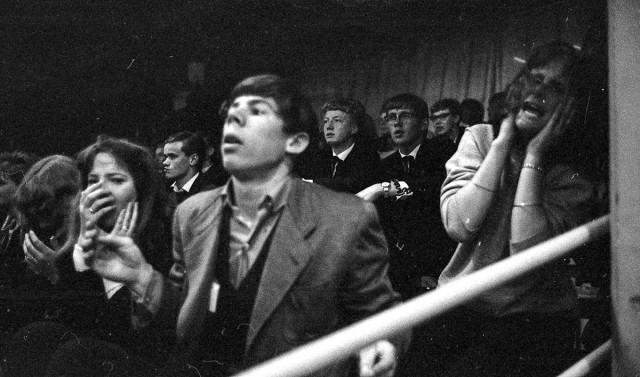
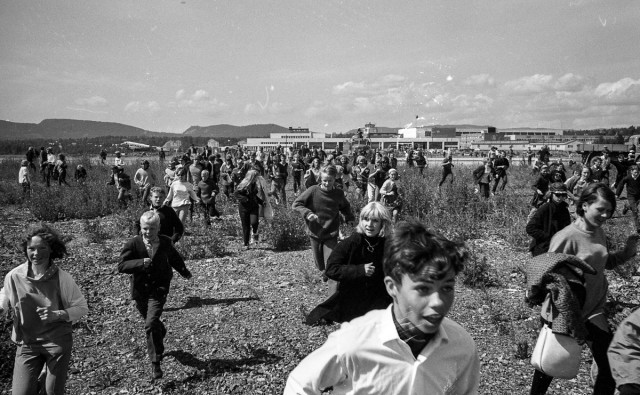
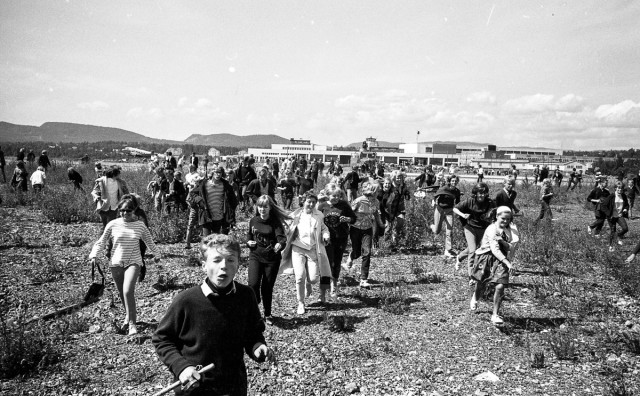
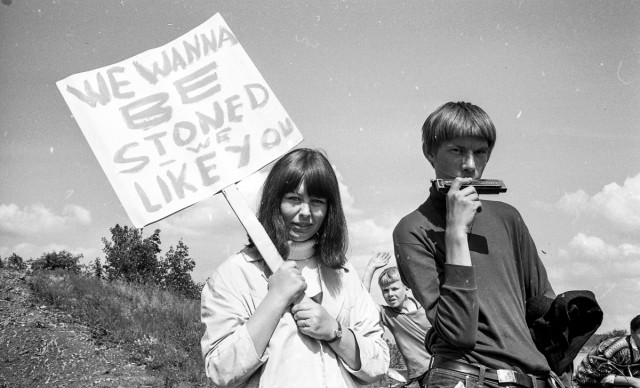
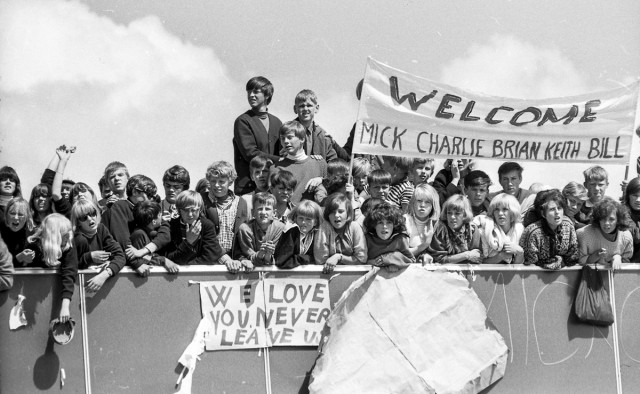
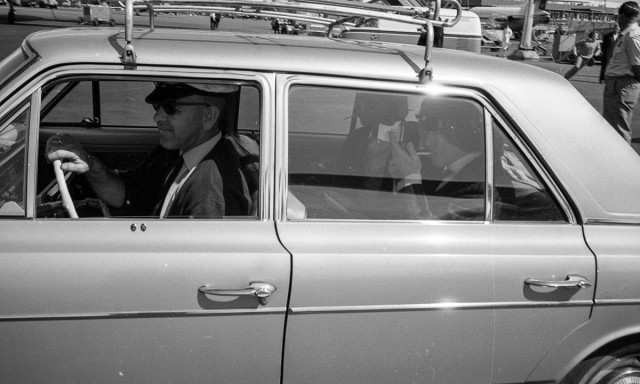
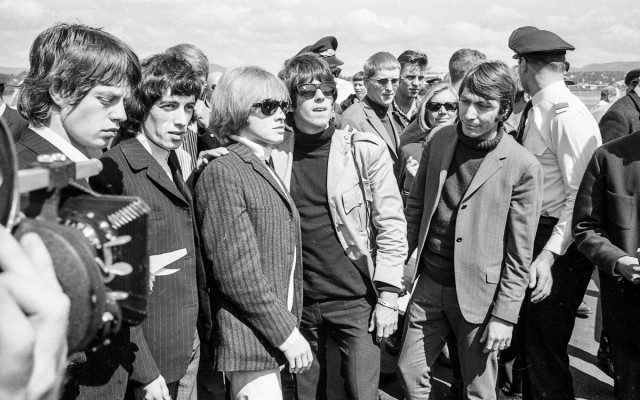
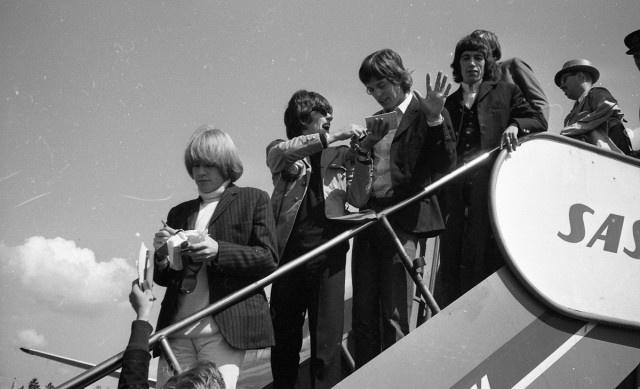
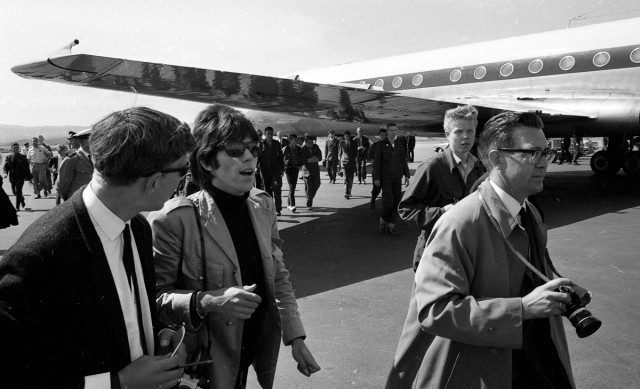
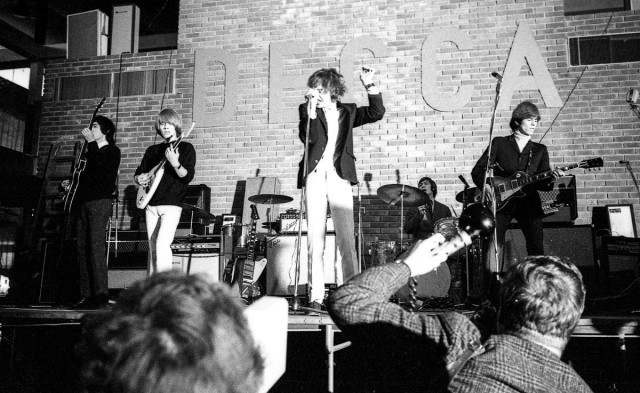
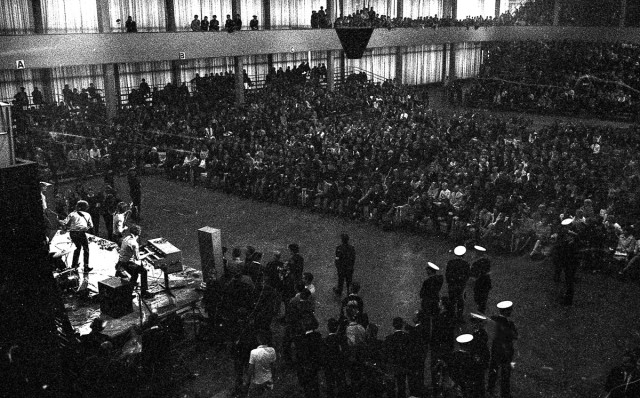
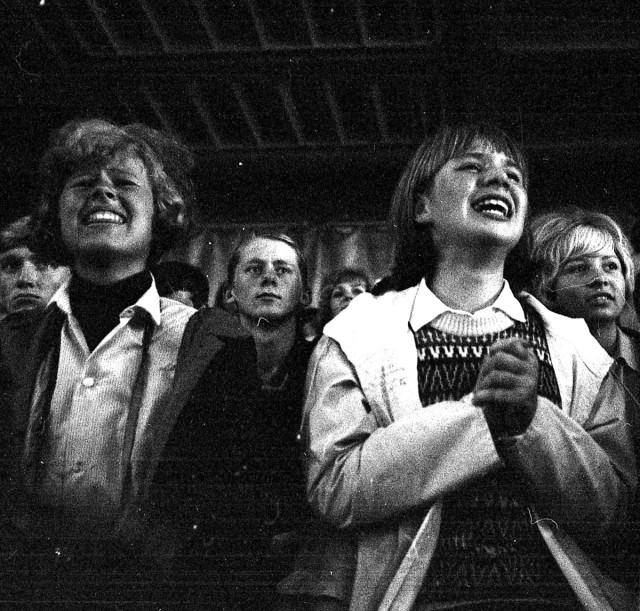
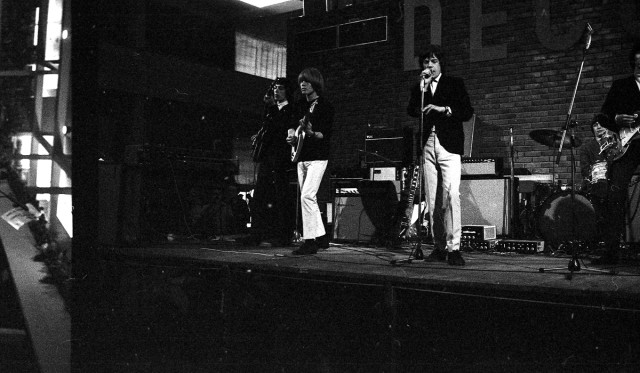
The Stones’ success on the British and American singles charts peaked during 1966. “19th Nervous Breakdown” Feb. 1966, UK number 2, US number 2) was followed by their trans-Atlantic number-1 hit “Paint It, Black” (May 1966).[48] “Mother’s Little Helper” (June 1966) reached number 8 in the US; it was one of the first pop songs to address the issue of prescription drug abuse.
The September 1966 single “Have You Seen Your Mother, Baby, Standing In The Shadow?” (UK number 5, US number 9) was notable in several respects: It was the first Stones recording to feature brass horns, the (now-famous) back-cover photo on the original US picture sleeve depicted the group satirically dressed in drag, and the song was accompanied by one of the first purpose-made promotional film clips (music videos), directed by Peter Whitehead.
All photos by:National Archives of Norway
